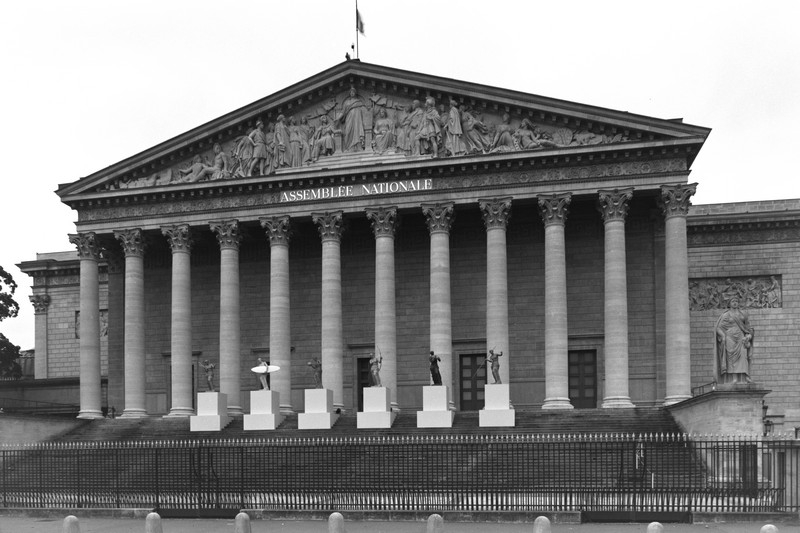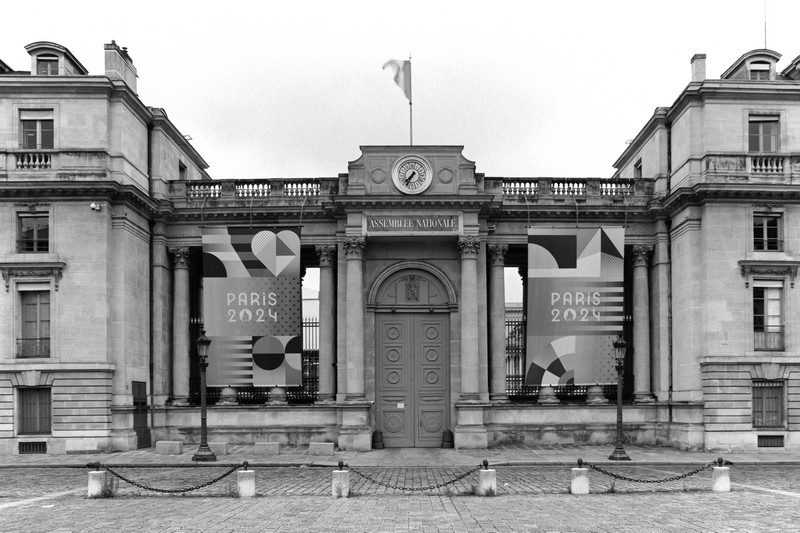[EN]
Ucratia II (The Assemblée Dissolved)
June 2024. 2 black & white film photographs
Diptych of the empty Palais Bourbon after the dissolution of the National Assembly, enunciated by Emmanuel Macron and made necessary, according to him, by the historic score of the far right in the European elections. Photographs taken on the morning of a working day in June 2024, following on from the series Ucratia, 2016 (in connection with the movement against the Labour Law and Nuit Debout, at the dawn of the current political cycle).
“Ucratia”
Greek neologism, introduced at the beginning of the twenty-first century, based on the mode of “utopia,” combining the negative [u-] and [krátos], “power,” instead of [topos], meaning “place.” Etymologically, therefore, the word means a “non-power,” either an incumbent power that is aberrant or illegitimate, or a desirable political regime that is yet to come. In fiction, “ucratia” is a genre relating to the principle of critical rewriting of political history.
[FR]
Ucratie II (L’Assemblée dissolue)
juin 2024. 2 photographies noir & blanc argentiques
Diptyque du Palais Bourbon vide après la dissolution de l’Assemblée Nationale, énoncée par Emmanuel Macron et rendue nécessaire, selon lui, par le score historique de l’extrême droite aux élections européennes. Photographies prises le matin d’un jour ouvré de juin 2024, dans la continuité de la série Ucratie, 2016 (en lien avec le mouvement contre la Loi travail et Nuit Debout, à l’aube du cycle politique actuel).
« Ucratie »
Néologisme grec du début du XXIe siècle, fondé sur le modèle d’ « utopie », avec un [u-] de négation et [krátos], « pouvoir », au lieu de [topos], « lieu ». Étymologiquement, le mot désigne donc un « non-pouvoir » : soit un pouvoir en place aberrant ou illégitime, soit un régime politique désirable, mais qui n’existe pas encore. Dans la fiction, l’ucratie est un genre qui repose sur le principe de la réécriture critique de l’Histoire politique.

